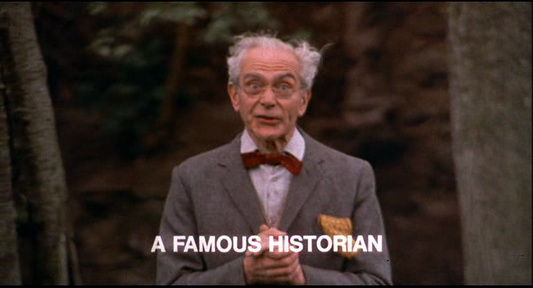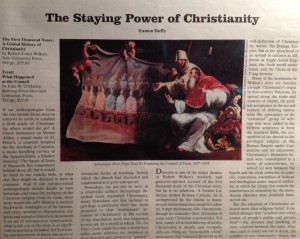 A brief news story on Alabama Public Radio recently discussed the delay of an Alabama State School Board vote on social studies textbook adoption because of some complaints that several of the texts demonstrated bias. The groups petitioning for the exclusions, including the Eagle Forum of Alabama and Act for America asserted that several texts contained anti-Christian and pro-Muslim statements. Continue reading “It’s Not Fair!”
A brief news story on Alabama Public Radio recently discussed the delay of an Alabama State School Board vote on social studies textbook adoption because of some complaints that several of the texts demonstrated bias. The groups petitioning for the exclusions, including the Eagle Forum of Alabama and Act for America asserted that several texts contained anti-Christian and pro-Muslim statements. Continue reading “It’s Not Fair!”
What’s Really Happening

In a recent post I mentioned an upcoming paper I was presenting at a panel in Baltimore on explaining the causes of early Christianity’s origins. My concern in that paper, which I delivered a few days ago, was to draw attention to problems with attempts to account for the origins and development of any social movement — a critique that, for some in this one field, has already invalidated such things as quests for the historical Jesus. However, serious scholars yet persist in trying to account for the originary conditions of this thing we call Christianity.
The goal, of course, is to find out “what really happened,” as phrased by one person during the Q&A. Isn’t it? Continue reading “What’s Really Happening”
The Other Shoe Drops
 In the same issue of The New York Review of Books that I cited elsewhere (the June 20, 2013 issue), there appears a review essay on two new books on the history of Christianity. Written by the Cambridge University historian, Eamon Duffy, and entitled “The Staying Power of Christianity,” it tackles Robert Wilken’s The First Thousand Years: A Global History of Christianity and John O’ Malley’s Trent: What Happened at the Council. For those interested in bringing more nuanced social theory to the study of religion, Duffy’s opening lines promise much: “If an anthropologist from the star system Sirius were to teleport to earth to conduct a field study of Christianity, where would she go?” What follows is a quick list of several different sites–e.g., a Greek monastery on Mount Athos, a papal mass in St. Peters, a Pentecostal snake-handling service, a Quaker meeting house, etc.–that makes plain that the notion of a homogenous thing called Christianity is hardly a given for many current scholars. “History is written backwards, hindsight is of its essence,” Duffy writes in concluding his introductory paragraph, “and every attempt to characterize any great and complex historical movement is an act of retrospective construction: what is left out of the story is just as significant as anything included.” Continue reading “The Other Shoe Drops”
In the same issue of The New York Review of Books that I cited elsewhere (the June 20, 2013 issue), there appears a review essay on two new books on the history of Christianity. Written by the Cambridge University historian, Eamon Duffy, and entitled “The Staying Power of Christianity,” it tackles Robert Wilken’s The First Thousand Years: A Global History of Christianity and John O’ Malley’s Trent: What Happened at the Council. For those interested in bringing more nuanced social theory to the study of religion, Duffy’s opening lines promise much: “If an anthropologist from the star system Sirius were to teleport to earth to conduct a field study of Christianity, where would she go?” What follows is a quick list of several different sites–e.g., a Greek monastery on Mount Athos, a papal mass in St. Peters, a Pentecostal snake-handling service, a Quaker meeting house, etc.–that makes plain that the notion of a homogenous thing called Christianity is hardly a given for many current scholars. “History is written backwards, hindsight is of its essence,” Duffy writes in concluding his introductory paragraph, “and every attempt to characterize any great and complex historical movement is an act of retrospective construction: what is left out of the story is just as significant as anything included.” Continue reading “The Other Shoe Drops”
